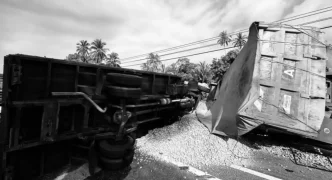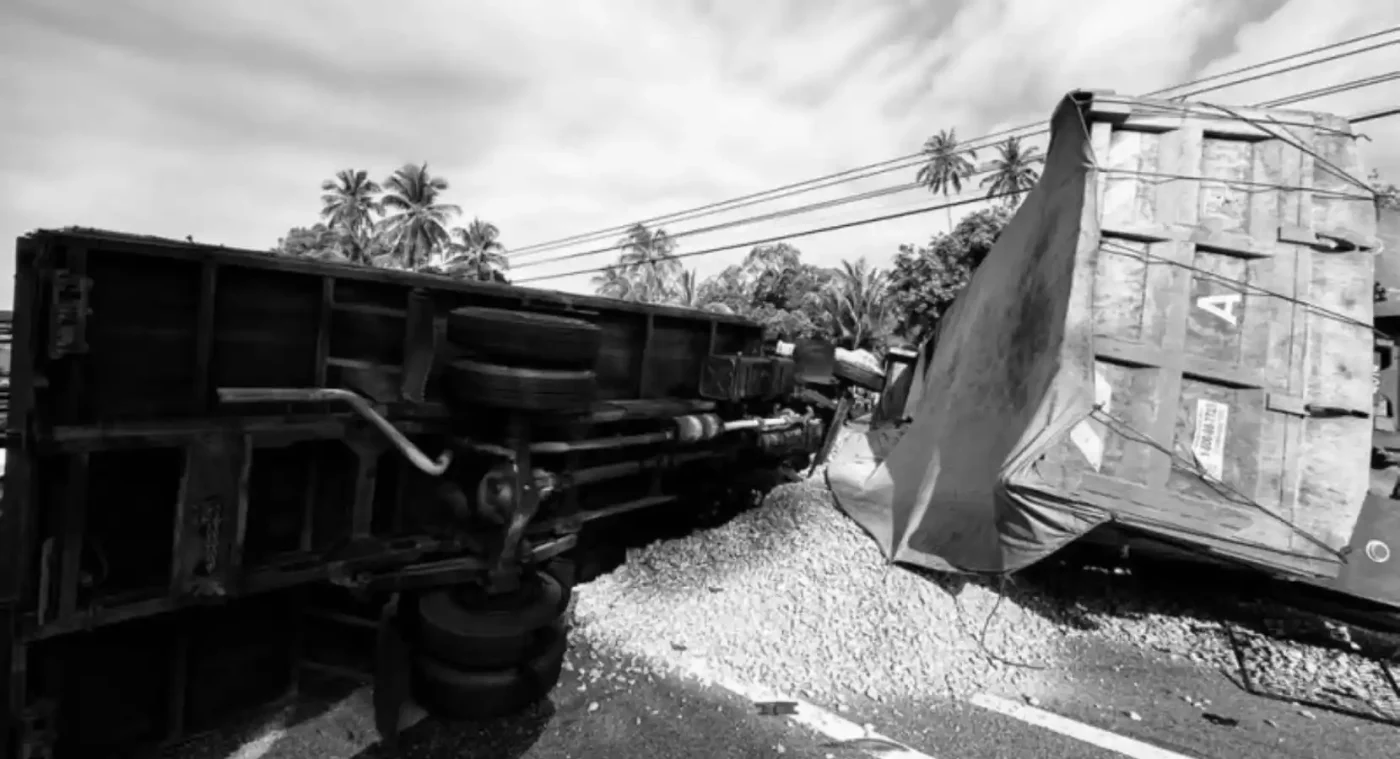In a tragic incident that has gripped Malaysia, a lorry crash on May 13 claimed the lives of nine policemen and left several others seriously injured, prompting a multi-agency investigation and reigniting public calls for stricter enforcement of road safety laws. Deputy Prime Minister Datuk Seri Dr Ahmad Zahid Hamidi announced that the company operating the lorry involved in the collision is under scrutiny under the Road Transport Act, as outrage mounts over perceived lapses in accountability for commercial vehicle operators.
A Devastating Collision
The fatal accident occurred when a lorry carrying gravel collided with a truck transporting 18 members of the Federal Reserve Unit (FRU) traveling from Teluk Intan to Ipoh. Initial findings, as revealed by Ahmad Zahid, point to a failure in the lorry’s steering system, which caused it to ram into the police vehicle. The crash, which took place in the early hours of May 13, resulted in nine deaths and left the remaining officers with severe injuries. The lorry driver has been remanded for four days to assist with the ongoing police investigation.
The scale of the tragedy has sent shockwaves through the nation, with many questioning how such a catastrophic failure could occur on a public road. The incident has not only highlighted the dangers faced by law enforcement officers in the line of duty but also exposed potential gaps in the oversight of commercial vehicles, particularly those carrying heavy loads like gravel.
Multi-Agency Probe Underway
Responding to the public outcry, Ahmad Zahid, who also serves as the Rural and Regional Development Minister and chairs the Cabinet Committee on Road Safety and Congestion, confirmed that the investigation extends beyond the driver to the lorry’s owner and the operating company. The Transport Ministry, alongside the Road Transport Department (JPJ) and Puspakom, a vehicle inspection agency, is leading the probe under the provisions of the Road Transport Act.
“We will leave it to the Transport Ministry and JPJ as the public feels that the lorry owner and company must be investigated and held responsible” said Ahmad Zahid during a press briefing following an event honoring high-performing officers of the Rural and Regional Development Ministry in Putrajaya on May 15. He emphasized that while existing laws are sufficient to hold companies accountable for accidents caused by malfunctioning vehicles, enforcement must be strengthened to prevent future tragedies.
The involvement of multiple agencies underscores the complexity of the case, as investigators seek to determine whether negligence, poor maintenance, or systemic oversight failures contributed to the steering malfunction. The public’s demand for accountability has placed additional pressure on authorities to deliver transparent and swift results.
Road Safety Laws Under Scrutiny
This incident has reignited a broader debate about road safety in Malaysia, where accidents involving heavy vehicles have long been a concern. According to data from the Malaysian Institute of Road Safety Research, commercial vehicles are disproportionately involved in fatal crashes, often due to inadequate maintenance, overloading, or driver fatigue. The May 13 crash has amplified calls for stricter regulations, including mandatory regular inspections and harsher penalties for non-compliance.
Ahmad Zahid’s assertion that current laws are adequate but require better enforcement raises questions about the mechanisms in place to monitor and regulate commercial transport operators. Critics argue that while the Road Transport Act provides a legal framework for accountability, its implementation has often been inconsistent, allowing some companies to evade responsibility for preventable accidents.
Transport advocacy groups have pointed to systemic issues, such as the lack of real-time monitoring of vehicle conditions and insufficient training for drivers handling heavy machinery. There is also growing concern about the economic pressures on smaller transport companies, which may lead to cost-cutting measures like delayed maintenance or overloading vehicles beyond safe limits.
Public Outrage and Political Implications
The public reaction to the crash has been one of grief and frustration, with many taking to social media to express their anger over what they perceive as negligence by the lorry company. Posts on platforms like X have called for the government to impose severe penalties on companies found liable for such incidents, with some users urging a complete overhaul of road safety policies. The sentiment reflects a broader dissatisfaction with the state of infrastructure and safety standards in Malaysia, particularly in rural areas where road conditions can exacerbate the risks of heavy vehicle travel.
For Ahmad Zahid, who has faced scrutiny in the past over unrelated legal matters, the handling of this crisis carries political weight. His dual role as Deputy Prime Minister and head of the Cabinet Committee on Road Safety places him at the forefront of the government’s response. Any perceived failure to deliver justice or implement meaningful reforms could further erode public trust in the administration’s ability to address systemic issues.
Political analysts suggest that the government may use this tragedy as a catalyst to push for tougher road safety measures, potentially introducing new legislation or funding for enforcement programs. However, such moves would need to balance public expectations with the economic realities faced by the transport industry, which plays a critical role in Malaysia’s economy.
Broader Impacts on Law Enforcement and Community
Beyond the immediate investigation, the crash has cast a spotlight on the risks faced by Malaysia’s law enforcement officers, who often travel long distances in challenging conditions to maintain security. The loss of nine FRU members has been felt deeply within the police force, with tributes pouring in for the fallen officers. Community leaders and police associations have called for better protections, including the use of safer transport options and improved route planning to minimize exposure to high-risk roads.
The incident has also prompted discussions about the psychological toll on surviving officers and the families of those who perished. Support services, including counseling and financial assistance, are reportedly being coordinated by the government, though details remain limited at this stage. The broader impact on public morale, particularly in communities reliant on police presence for safety, cannot be understated.
Looking Ahead: Accountability and Reform
As the investigation into the May 13 crash unfolds, the Malaysian public remains watchful, eager for answers about the cause of the steering failure and the extent of the lorry company’s liability. The outcome of the probe by the Transport Ministry, JPJ, and Puspakom will likely set a precedent for how similar cases are handled in the future, potentially shaping national policies on road safety and corporate responsibility.
For now, the tragedy serves as a stark reminder of the urgent need for systemic change in how commercial vehicles are regulated and maintained. Whether the government can translate public outrage into actionable reforms remains to be seen, but the pressure to act decisively has never been greater. As Malaysia mourns the loss of nine brave officers, the call for justice and safer roads echoes louder than ever.
















